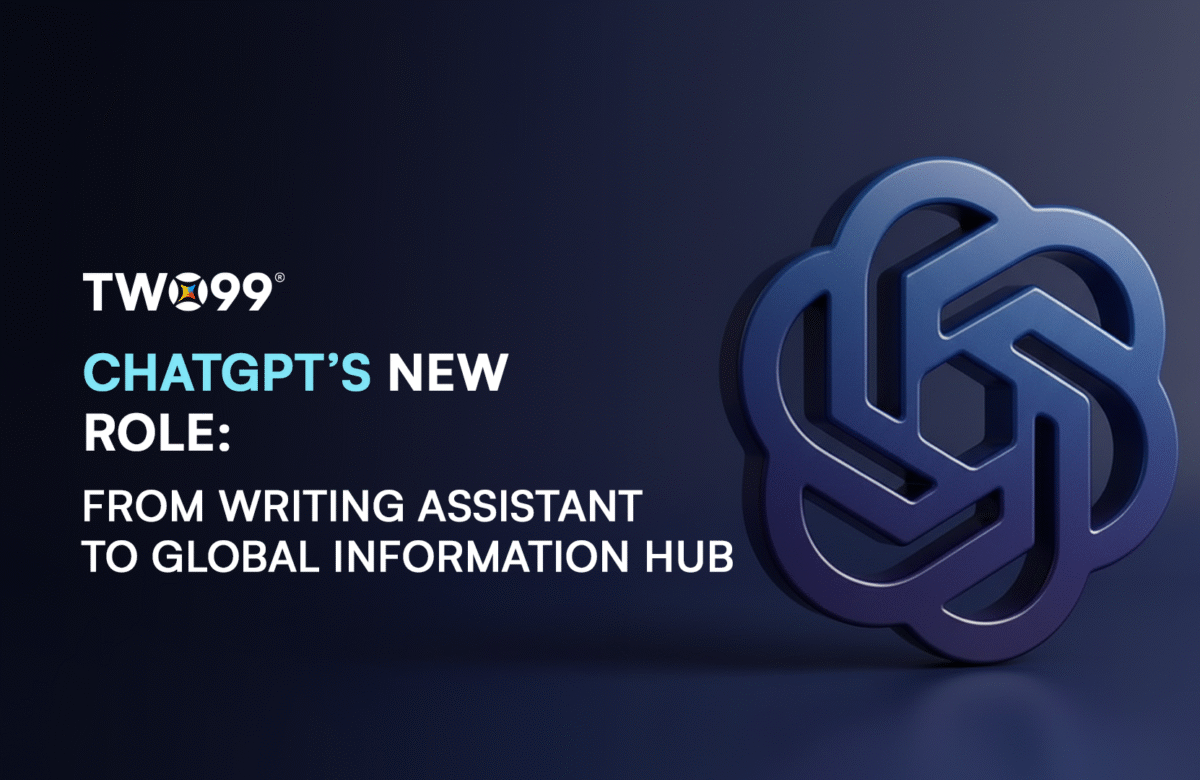ChatGPT has moved far beyond its early days as a tool for drafting emails or summarizing text. Today, it is fast becoming a destination for information, with people increasingly using it the way they once used search engines. A joint study by OpenAI and Harvard found that nearly 1 in 4 ChatGPT conversations now focus on seeking information, up sharply from 14% a year ago.
What’s Driving ChatGPT’s Growth in Information-Seeking?
Several factors are fueling the rise of ChatGPT as a go-to source for information.
Instant, Conversational Answers
Traditional search engines give you a long list of results, requiring extra effort to sift, click, and compare. ChatGPT, on the other hand, cuts through the noise with direct answers. For users who value speed and simplicity, this conversational clarity feels refreshing, more like asking a knowledgeable friend than browsing a database.
This “ask and understand instantly” model is especially attractive for younger audiences and time-pressed professionals, who expect digital interactions to be smooth and immediate.
Accessibility Across Work and Life
The study found that over 70% of ChatGPT use is now personal rather than professional. People ask for book recommendations, travel itineraries, wellness tips, or even guidance on personal finance. At the same time, it remains a strong workplace companion for drafting content, preparing briefs, or brainstorming ideas.
This duality, being equally useful in boardrooms and living rooms, is a big reason for its exponential adoption.
Global Adoption at Scale
By mid-2025, ChatGPT had reached 700 million weekly active users, generating 18 billion messages per week. What’s even more striking is the pace of growth in emerging economies. In lower-income countries, adoption has been four times faster than in high-income nations, highlighting how AI is leveling access to information globally.
For communities where resources are limited, ChatGPT offers an affordable, always-available alternative to libraries, tutors, or expensive professional services.
How Are People Using ChatGPT Today?
The research categorizes usage into three dominant areas:
- Practical Guidance (29%) – Everyday “how-to” questions, from fixing an appliance to improving communication skills.
- Writing (24%) – Drafting, editing, and refining text, which was once the primary use case but has now declined from 36% a year ago.
- Seeking Information (24%) – Queries that closely resemble traditional web searches, from quick facts to deeper explanations.
This shift from writing to information-seeking suggests that people no longer see ChatGPT as just a writing helper. Instead, they increasingly trust it as a knowledge companion capable of supporting a wide range of needs.
The Advantages of ChatGPT as an Information Hub
Personalization and Context
Unlike static search results, ChatGPT remembers the flow of a conversation and tailors answers to context. This means users don’t have to repeat themselves, creating a more natural and personalized experience.
Efficiency and Productivity
From students preparing for exams to professionals summarizing lengthy reports, ChatGPT boosts productivity by reducing time spent hunting for information. Its ability to condense complex topics into digestible insights is one of its biggest advantages.
Democratization of Knowledge
In regions with limited access to education or resources, ChatGPT serves as an always-available tutor, coach, or explainer. This democratization effect is one of the most positive and transformative aspects of AI adoption worldwide.
What Does This Mean for Marketers and Content Creators?
If consumers are moving from search-first to chat-first, the implications for marketing and content strategy are significant.
- Content must be more direct: Instead of creating long, keyword-stuffed articles, brands need to focus on clear, conversational answers to common questions.
- Authority matters more than ever: Since AI models prioritize trustworthy information, businesses must invest in building domain authority and producing credible, well-sourced content.
- Question-driven formats will grow: FAQs, explainers, and conversational guides will gain importance as they align more closely with how users frame queries in AI tools.
In other words, the way we structure content will need to adapt to AI ecosystems, not just search engines.
Is ChatGPT Replacing Search Engines?
The short answer: not yet. Search engines like Google remain dominant for deep research, shopping comparisons, and navigating the broader web. But ChatGPT is carving out a parallel role, especially for instant clarity and everyday answers.
For example, a student might still use Google Scholar for research papers but rely on ChatGPT for breaking down complex theories into plain language. A traveler may search flights on Google but ask ChatGPT to design a personalized 5-day itinerary.
Rather than a direct replacement, ChatGPT is becoming a complementary habit, one that’s slowly reshaping how we think about information discovery.
The Bigger Question: How Will AI Redefine Knowledge?
If nearly a quarter of ChatGPT conversations are already information-seeking, we are witnessing the early stages of a major behavioral shift. As AI tools become even more advanced, they could redefine not only how we access information but also how we trust, share, and act on it.
The real question is not whether AI will compete with search engines, but:
Are we ready for a world where AI becomes the first stop for knowledge?




